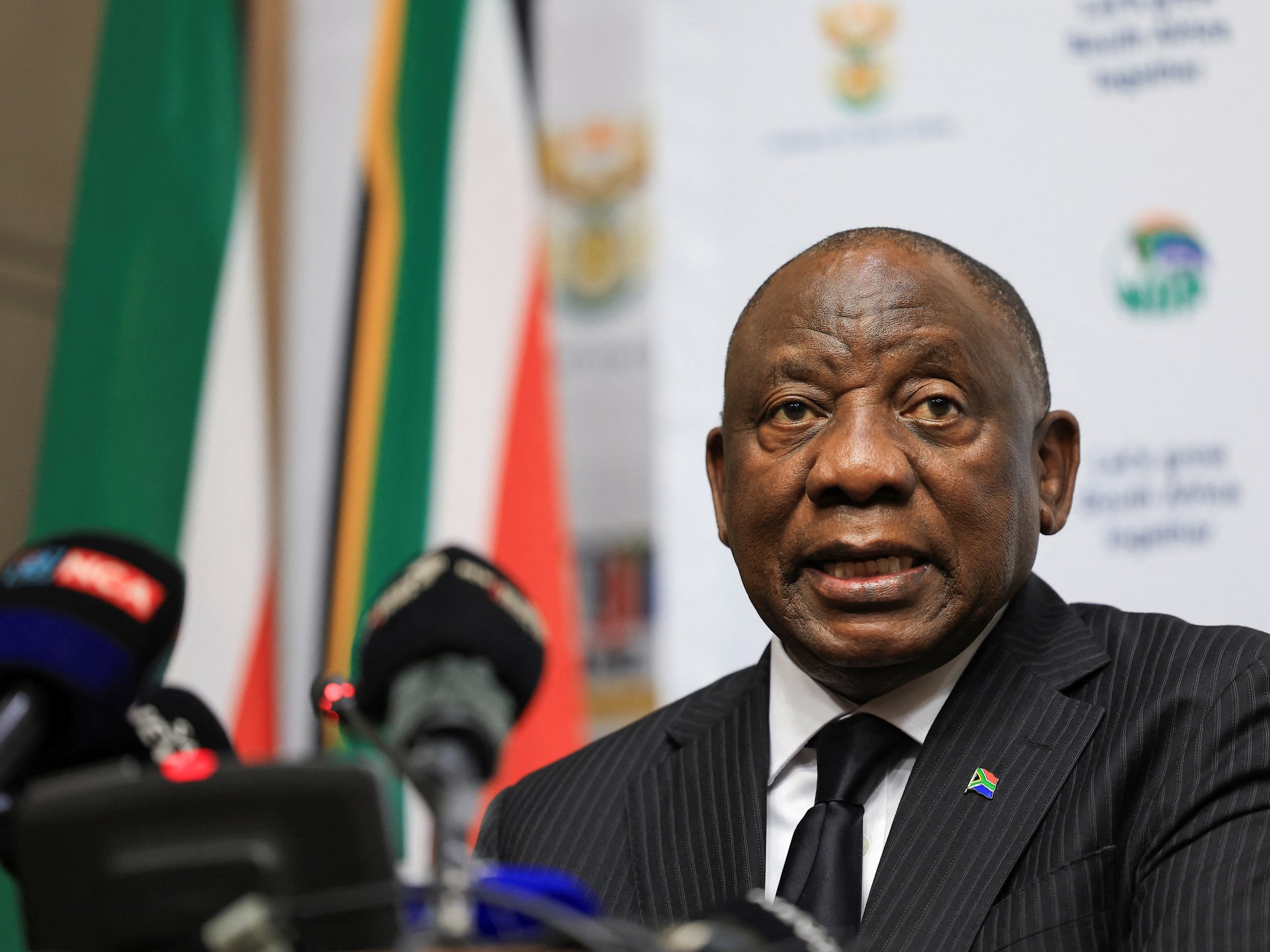Africa
South Africa leader calls Elon Musk over ‘distortions’ after Trump attack

1. Introduction: A Diplomatic Dialogue
In a significant diplomatic interaction, South African President Cyril Ramaphosa engaged in a conversation with Elon Musk following comments made by US President Donald Trump regarding South Africa’s land reform policies. This dialogue was precipitated by Trump’s announcement to suspend aid to South Africa, citing concerns over the fairness of the land redistribution process. Musk, a South African native with ties to Trump, added his perspective, critiquing the policy as racist towards white individuals. Ramaphosa’s response aimed to clarify misconceptions and reaffirm South Africa’s commitment to equitable land distribution.
2. The Land Reform Policy: Addressing Historical Inequities
South Africa’s land reform policy is rooted in the post-apartheid era, seeking to rectify the profound racial disparities in land ownership that persisted after 1994. The policy intends to promote equity by allowing the state to expropriate land for public interest, ensuring fair distribution. It is crucial to note that this process is not arbitrary; agreements with landowners are sought, reflecting South Africa’s respect for legal and constitutional principles. This initiative is not unique, as many countries implement similar measures to address historical injustices and promote social equity.
3. Trump and Musk’s Involvement: A Mix of Politics and Social Media
President Trump’s decision to suspend aid to South Africa was part of his broader "America First" agenda, which has led to a reevaluation of global aid commitments. Trump’s concerns were echoed by Musk, who took to social media to express his views, sparking widespread debate. Musk’s comments highlighted the polarized perceptions of the land reform policy, underscoring the challenges South Africa faces in balancing historical redress with modern economic realities. Trump’s statement added political weight to the discussion, potentially influencing international perspectives on South Africa’s internal policies.
4. Ramaphosa’s Response: Clarifying Misconceptions
President Ramaphosa’s conversation with Musk was an effort to address the misinformation surrounding South Africa’s land reform. The South African presidency emphasized the country’s adherence to constitutional values, including the rule of law and equality. Ramaphosa’s approach was both diplomatic and educational, aiming to provide context and clarity on the policy’s objectives. This dialogue reflects South Africa’s commitment to engagement and its desire to foster understanding in the international community.
5. US Aid and South Africa’s Stance: A Broader Context
The announcement to suspend aid by the US was part of a larger shift in its foreign aid policies. South Africa’s response highlighted that the impact of this decision would be minimal, as the majority of US aid is allocated to specific health programs. This context underscores South Africa’s resilience and its ability to navigate changes in international aid dynamics. The government’s emphasis on the constitutional underpinnings of the land reform policy serves to reassure both domestic and international stakeholders of its legitimacy and fairness.
6. Global Implications: Land Reform and International Relations
The debate over South Africa’s land reform policy extends beyond national borders, touching on themes of race, history, and economic justice. It highlights the challenges nations face in addressing historical inequities while maintaining global cooperation. This situation serves as a microcosm of broader discussions on land rights and redistribution, emphasizing the need for nuanced understanding and diplmacy. South Africa’s approach, while specific to its context, offers insights into the complexities of achieving social equity in diverse societies.